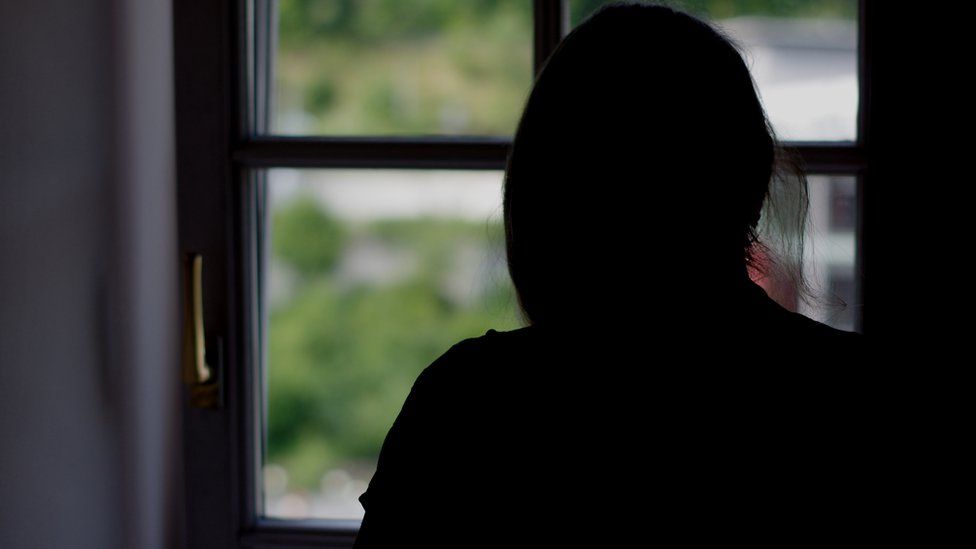Belfast trans woman endures six years of 'soul-destroying' attacks
- Published

A transgender woman from Belfast has said she is considering relocating due to six years of attacks on her home.
It comes as the latest police statistics show that reported racist, homophobic, disability and transphobic motivated hate crimes are at their highest since 2004/2005.
Jennifer told the BBC the repeated attacks were "soul destroying".
She said her windows had been broken, things had been thrown at her house and there had been threats to kill her dog.
"I just want to be me and go out and have fun, do a bit of shopping and have a bit of craic," she told BBC Radio Ulster's Evening Extra programme.
She said she never knew when the attacks would begin or when they would end.
"The abuse could start tomorrow and go on for a week, then it could stop for months and then start up again and go on for five months," she said.
"Every time you think, 'Great it's over, it won't happen anymore,' it starts up again."
She said it had been mentally draining.
"I try to fight and get up because before my surgery I know what my mental health was like, so I always try to keep myself up and happy and try keep a good outlook on life," she told Evening Extra.
"It just gets to you. It's soul destroying - it just saps you."
Jennifer said the perpetrators were a "small minority".
"They are picking me out and thinking, 'Oh - let's go have some fun'.
"I can't understand their mentality. I'm not harming them and I didn't even know they existed before this all started."
If the attacks stopped, she said she could "relax and be able to go out without worrying" if she was going to see the perpetrators in the street.
A message to perpetrators
If she was able to give the perpetrators a message, she would ask them to stop.
"I don't know whether they know about the hurt they're causing," she told the programme.
Jennifer said she had initial hesitations about contacting the police.
"When it started, from a trans point of view, I was worried they wouldn't do anything.
"I have come along from that though and I now report every single incident.
"It was important for me to speak up because it's underreported, not by the media, but in that people are maybe scared to come forward or they won't be believed.
"I spoke up to encourage more people to stand up and say: 'No, I'm not going to let this happen anymore.'
"Whether you think it constitutes a hate crime or not, if anything is done against you or your property, I would immediately pick up that phone."
Courage
The Police Service of Northern Ireland (PSNI) Hate Crime lead Supt Sue Steen commended Jennifer's "courage for telling her story".
A hate crime is any criminal offence which is perceived by the victim or any other person as being motivated by prejudice or hostility.
She said while it is concerning that figures are at a high, she was also encouraged by the number of people who are now reporting alleged hate crimes.
"We hope the increase in figures can also be attributed to an increase in people coming forward," she added.
Increase in prosecutions
However Supt Steen said many homophobic and transphobic incidents may still go unreported.
"We're not going to sit and rest on our laurels and say that we know the full picture, we don't," she said.
"My message to those who have been the victim of an incident or a crime, I want to reassure them that if they make that courageous step to come forward to police that it will be investigated, they will be believed, they will be supported and they will not be judged."
She told the programme that in 2020/21 the outcome rate (prosecution rate) for homophobic hate crimes was 16% and 2021/2022 it was 23%.
"It is increasing, but it's not where we want it to be," she said.
"It means we are only able to bring someone to justice on a quarter of the occasions it was reported as a crime.
"We want to improve that and we will continue to work at. It's absolutely something we need to get better at."
If you've been affected by any of the issues raised in this story, help and support is available via the BBC Action Line.
Related Topics
- Published16 January 2020
- Published11 October 2020
- Published28 October 2019